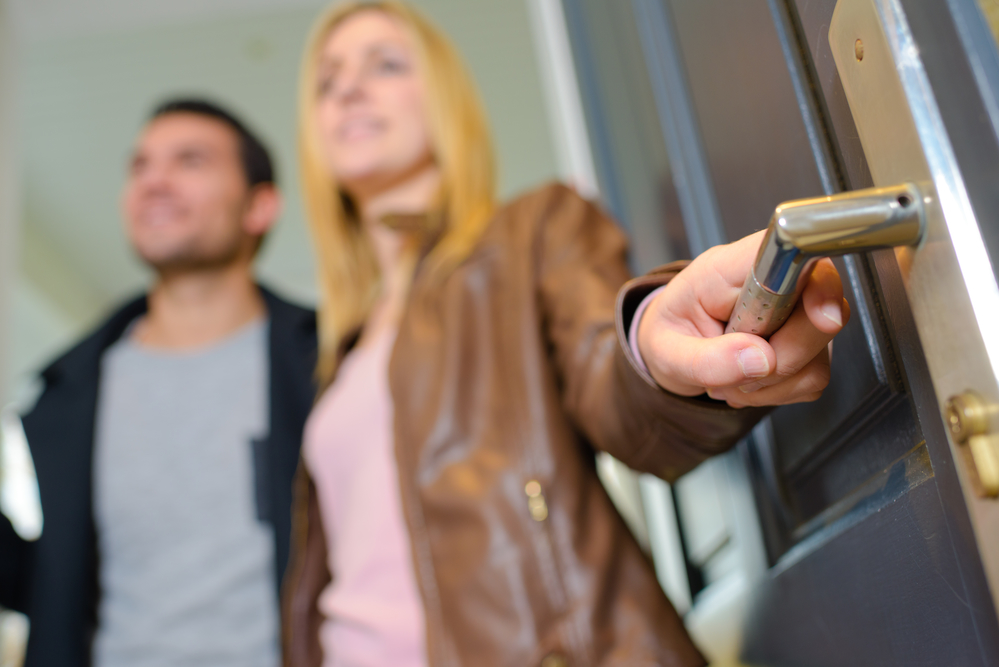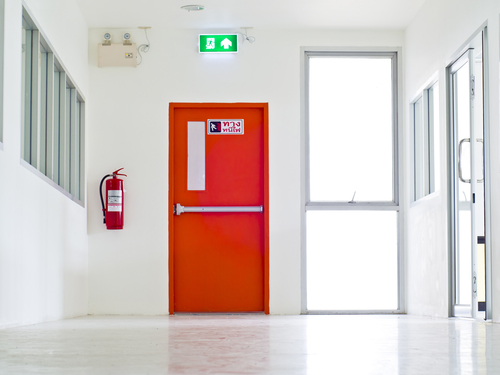 Every entry and exit to your facility needs to be properly outfitted to allow for ease of access. An important and necessary component is an exit device. There are many options to choose from, some being better suited than others depending on the door location and door type.
Every entry and exit to your facility needs to be properly outfitted to allow for ease of access. An important and necessary component is an exit device. There are many options to choose from, some being better suited than others depending on the door location and door type.
What is an Exit Device?
Exit devices are mounted on the egress side of the door. They’re often called panic bars or push bars and are very important in emergency situations. To activate you simply push the spring loaded bar which unlatches the lock. Exit devices provide a simple, safe way to exit a building so having them installed on all exit doors is a smart move.
What is the Importance of an Exit Device?
Exit devices serve a few crucial purposes. First, they’re the safest exiting option in emergency situations. Their components are simple lessening the chance of a malfunction and they’re easy for anyone to use. Double check ADA compliance requirements for your area before purchasing an exit device, but most fall under ADA mandate.
Exit devices also supply additional security When installed on exit only doors they ensure the door will remain locked and inaccessible from the outside. They can also be hooked up to your security systems so that your alarms may be activated if the exit device is used.
Additional Benefits of Exit Devices
Traditional push bars are incredibly affordable. Ranging from about $100 – $300 per exit bar they’re in inexpensive way to add an extra element of safety to your commercial building. Check with your local locksmith if they have preferred vendors for this particular device. A professional will make sure you get the best deal possible.
Adding exit devices to your doors may also give you a break on your insurance rates. Supplementing your building’s security and properly preparing for emergency situations makes you more insurable and will position you for better rates.
Types of Exit Devices
You have a few choices when it comes to your preferred exit device:
- Rim Style: this is the most common variety of exit device. A rim style device is surface mounted and has a bolt that fits over surface mounted strike.
- Bolt Rim: relatively new, a bolt rim has a deadbolt latching system that extends on top of the strike decreasing the space between the strike and the bolt.
- Mortise Lock: usually only used on a double door system and installed onto the swinging door. It has a mortise lock in the door pocket in the doors edge and is part of the exit device.
Installing exit devices should exclusively be done by a professional locksmith. They’ll recommend the best style for your existing doors and insure proper installation. If you’re looking for a professional in the Boston area, contact Kenny’s Locks.

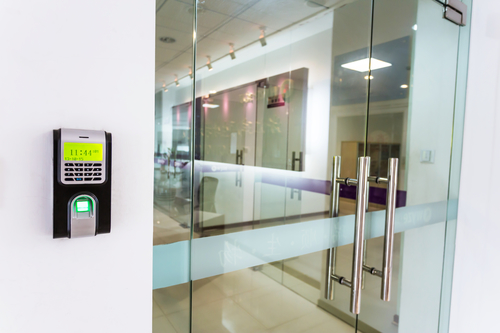 Deciding how best to arm your business from unwanted intruders or visitors may induce a bit of head scratching over which security option would be the best fit. One of the more popular and effective varieties is the access control system.
Deciding how best to arm your business from unwanted intruders or visitors may induce a bit of head scratching over which security option would be the best fit. One of the more popular and effective varieties is the access control system. 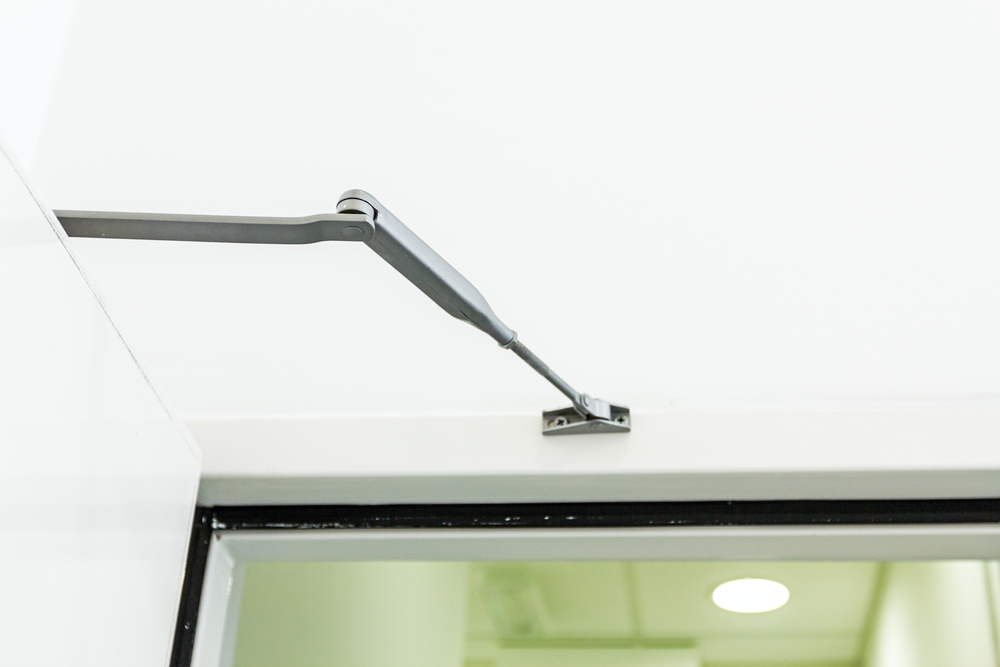 One of the most important mechanisms installed on your commercial doors is the door closer. Without a proper closer your doors could be slamming shut causing damage to the door and frame or not closing at all letting valuable energy escape and compromising
One of the most important mechanisms installed on your commercial doors is the door closer. Without a proper closer your doors could be slamming shut causing damage to the door and frame or not closing at all letting valuable energy escape and compromising 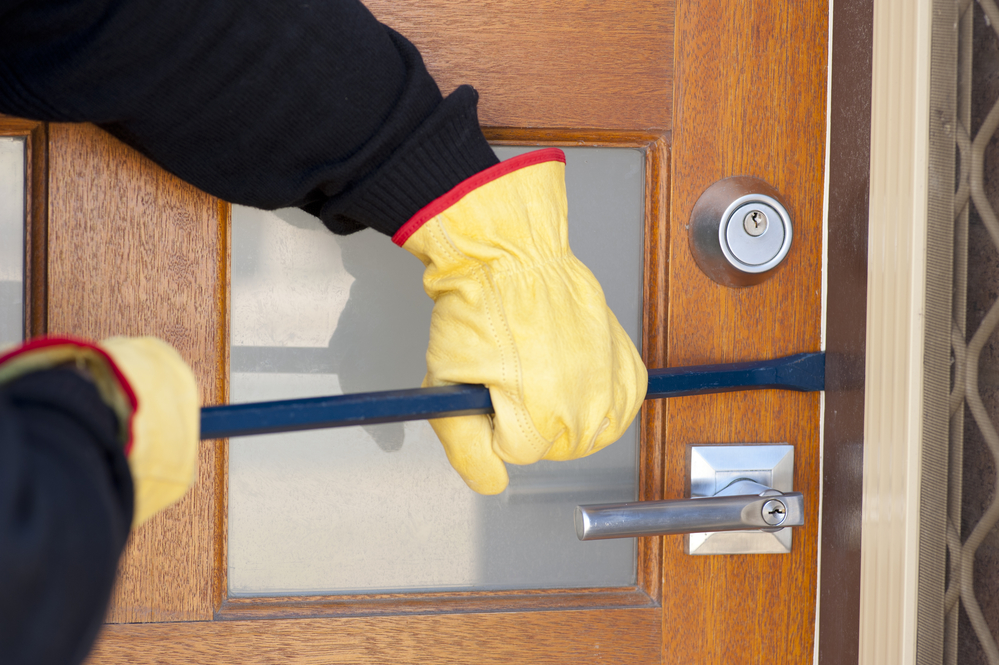 There are several ways to improve the security of the doors to your home or business. High tech security systems,
There are several ways to improve the security of the doors to your home or business. High tech security systems, 